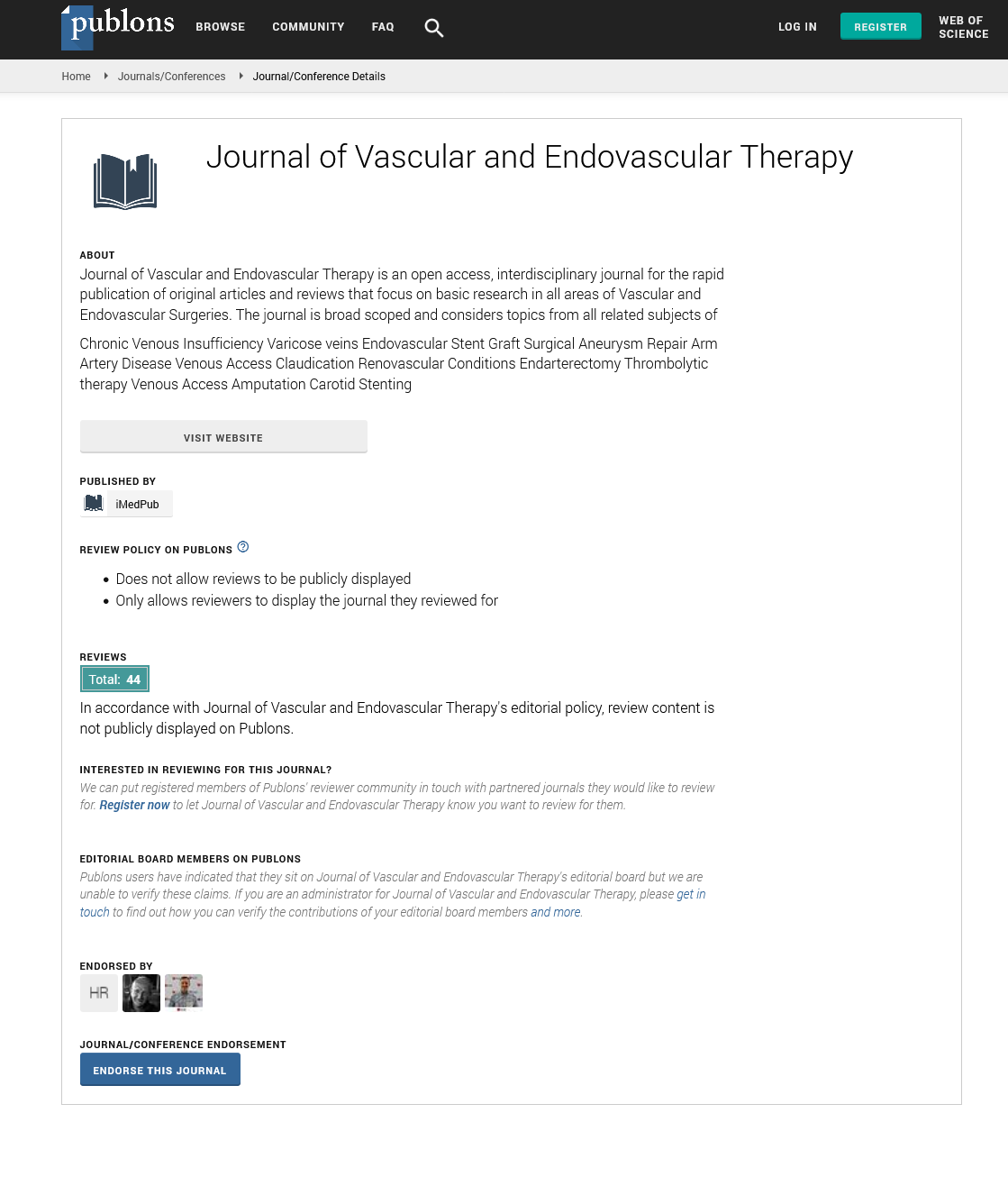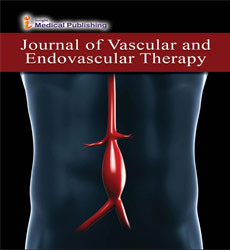Abstract
4 Year Follow-Up After Carotid Bifurcation Resection and Interposition of a Poly tetrafluoroethylene Graft for Carotid Artery Disease
Introduction: The major cause of carotid artery disease is the presence of a significant carotid artery stenosis due to progressive arteriosclerosis. The gold standard remains carotid endarterectomy. However, other treatments have been performed: Eversion Carotid Endarterectomy, Carotid Artery Stenting and Carotid Bypass Grafting. In this article, the long-term follow-up results of an alternative surgical technique called Carotid Bifurcation Resection and Interposition of a Polytetrafluoroethylene Graft (BRIG) procedure are described.
Method: All BRIG procedures between April 2006 and September 2013 were retrospectively analysed. All procedures were performed by a single experienced surgeon (Philippe De Vleeschauwer) in a single centre.
Results: 70 BRIG procedures were performed during the study period. The median follow-up was 46.5 months (interquartile range 29.6–63.0 months, maximum 117 months). Indication for surgery was a symptomatic moderate stenosis (50–79% stenosis) in 10.0%, high-grade stenosis (≥ 80% stenosis) in 87.1% and (pseudo-) aneurysm in 2,9%. 34.3% of the procedures were for symptomatic carotid artery disease. 91.4% were primary treatments, whereas the remaining 8.6% had undergone a previous CEA on the ipsilateral carotid artery. During the 30 day post-operative follow-up period 1 patient died (1.4%) due to an acute myocardial infarction and 2 patients (2.9%) suffered a minor stroke with only minor residual fine motor impairment. Long-term patency showed a 50–69% restenosis rate of 4.3% a 70–99% restenosis of 0% and an occlusion rate of 1.4%. Jaw claudication occurred in 2 patients (2.9%).
Conclusion: The BRIG procedure is a promising alternative surgical technique to carotid endarterectomy. The results show a low 30 day post-operative mortality and morbidity, with excellent long-term graft patency. The BRIG procedure appears to be a safe and promising technique.
Author(s):
Ian Diebels, Marc Dubois and Philippe de Vleeschauwer*
Abstract | Full-Text | PDF
Share this

Google scholar citation report
Citations : 177
Journal of Vascular and Endovascular Therapy received 177 citations as per google scholar report
Journal of Vascular and Endovascular Therapy peer review process verified at publons
Abstracted/Indexed in
- Google Scholar
- Open J Gate
- Publons
- Geneva Foundation for Medical Education and Research
- Secret Search Engine Labs
Open Access Journals
- Aquaculture & Veterinary Science
- Chemistry & Chemical Sciences
- Clinical Sciences
- Engineering
- General Science
- Genetics & Molecular Biology
- Health Care & Nursing
- Immunology & Microbiology
- Materials Science
- Mathematics & Physics
- Medical Sciences
- Neurology & Psychiatry
- Oncology & Cancer Science
- Pharmaceutical Sciences


